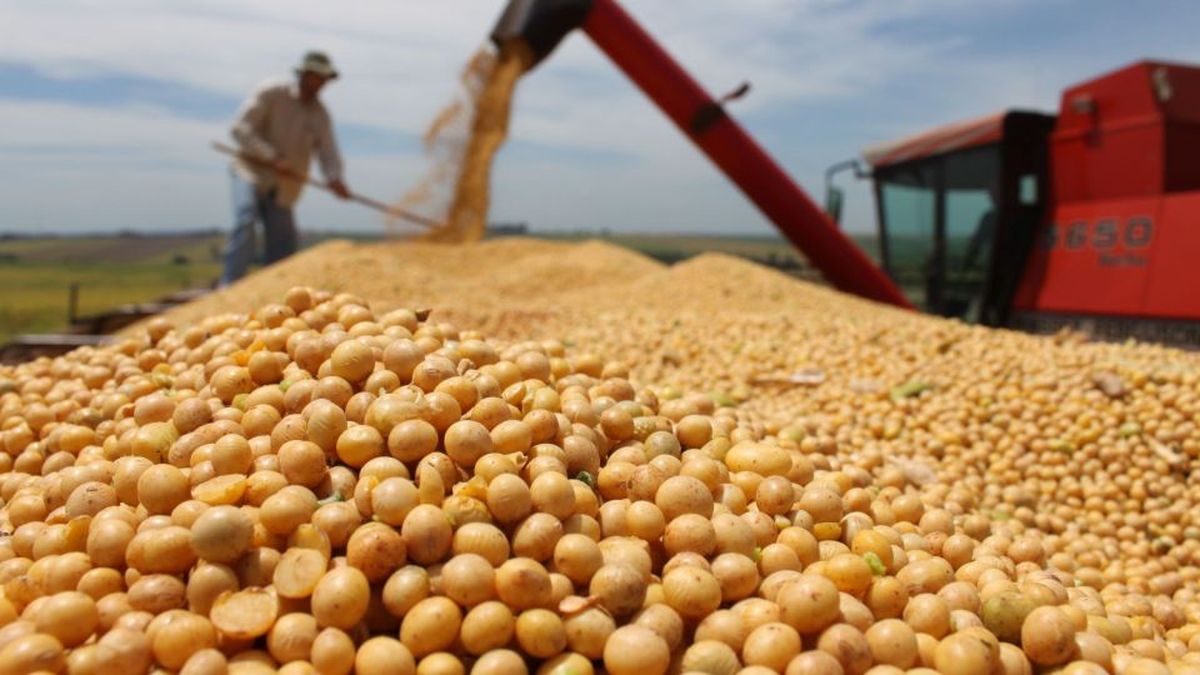In any case, this 2022 would leave a balance more than positive and even record in terms of foreign currency income from agriculture. If other sectors are taken into account, such as meat exports, agribusiness would close the year with a settlement of more than US$41.6 billion.
For 2023, a drop in the international prices of some products is expected, beef is of concern, but also a greater production of soybeans, which would once again be the savior of the Argentine economy, from next April when the bulk of the dollars from the harvest would begin to enter.
The soybean complex would register shipments for US$24,126 million, almost US$500 million more than in 2022. The largest volume projected to be exported of all the products of the complex (more than 4 million tons between beans, flour/ pellets, oil and biodiesel) more than offset a projected drop in export prices for next year.
Postponed shipments
At this time, the economic team and the Secretary of Agriculture, Juan José Bahillo, continue to work to establish a scheme to postpone some shipments of wheat, taking into account that the wheat harvest is expected to be just 13 million tons. Internal supply will be the priority, but they will also seek to implement some type of compensation or insurance for those producers who lost a large part of the planted area due to lack of rain and frost.
Until the end of October, exporters had made official affidavits of sales abroad (DJVE) of 2022/23 wheat for 8.9 million tons, according to government data. In this framework, from CIARA CEC, the chamber that brings together the main agro-export companies, confirm that there were official conversations with the Government to postpone shipments and that the measure could be communicated in the coming days.
“If the government is going to do it, let it do it now, because we have to turn around and talk to customers from Indonesia, Morocco, Algeria, Egypt and tell them that our wheat has burned and renegotiate those contracts,” they detail from the export sector who also explain that With official authorization, rescheduling would not pay a fine from Argentine Customs of 15% of the value of the shipment.
Meanwhile, the head of the Argentine Federation of the Milling Industry (FAIM), Diego Cifarelli, also confirmed the dialogue between exporters and the Government regarding the rescheduling of shipments, which authorities seek to be a possible solution to a tight harvest. for the demand of the industry and exporters.
“There is concern,” said Cifarelli, who pointed out that the demand for wheat from the mills is 6.5 million tons and that the production of the current campaign, 13.7 million tons according to the BCR, is added an additional 2 million unsold tons from the previous campaign, the 2021/22 cycle.
However, the head of FAIM pointed out that, if there are no more losses of wheat, he believes that the demand will be met, although the companies will have to “seduce” the producers to sell their merchandise, which will impact prices. of flour and food.
Source: Ambito
David William is a talented author who has made a name for himself in the world of writing. He is a professional author who writes on a wide range of topics, from general interest to opinion news. David is currently working as a writer at 24 hours worlds where he brings his unique perspective and in-depth research to his articles, making them both informative and engaging.




